Key takeaways:
- Establish a clear timeline and communication with all vendors to ensure a seamless wedding day experience.
- Account for potential delays by including buffer times in the schedule and plan for transportation logistics.
- Coordinate guest management by assigning ushers and creating clear seating arrangements to enhance the guest experience.
- Incorporate a rehearsal to clarify roles and prevent confusion on the wedding day.
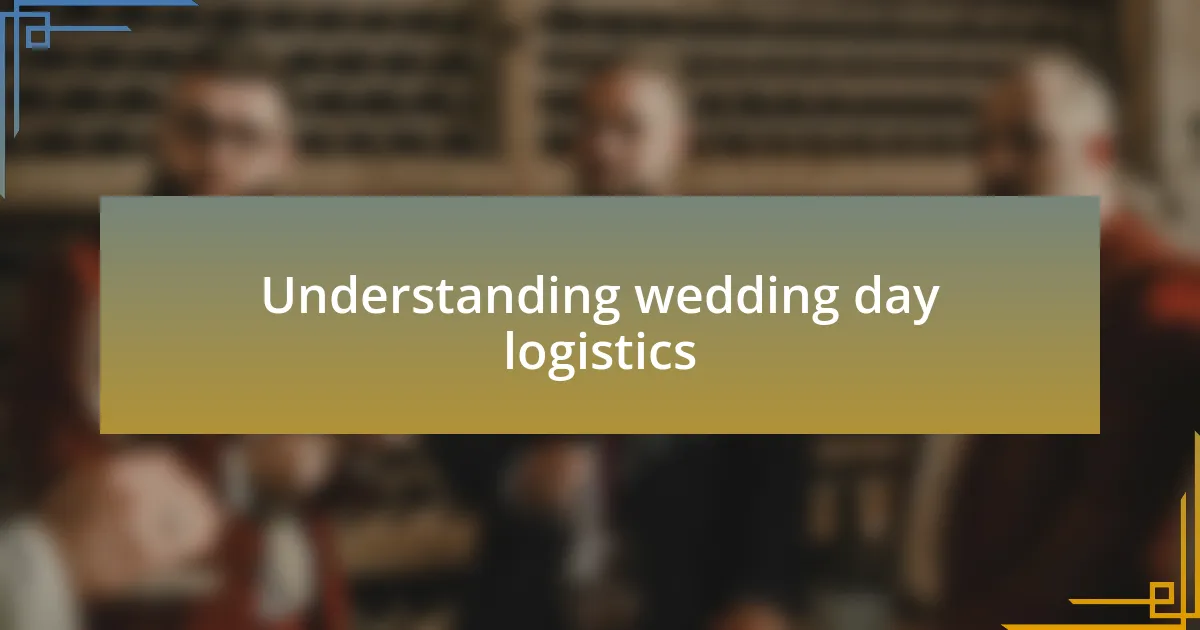
Understanding wedding day logistics
Understanding wedding day logistics is crucial for a seamless celebration. I remember my own wedding day; the moment I finally saw everything come together, I felt a wave of relief. It’s not just about the schedule; it’s about ensuring everyone knows their role and timing. How often do we overlook these details in the excitement of planning?
Consider the flow of the day. One key lesson I learned is the importance of having a timeline that accommodates potential hiccups. For instance, when our photographer arrived late, I was grateful for some built-in buffer time. Would you want to risk missing those candid moments because of a tight schedule? I certainly didn’t.
Communication is another vital aspect. I encouraged open dialogues among all vendors—caterers, florists, and the venue manager. This proactive approach ensured everyone was aligned, reducing anxiety as the big day approached. Ultimately, having everyone on the same page made a world of difference. Have you thought about how effective communication can ease wedding day stress?
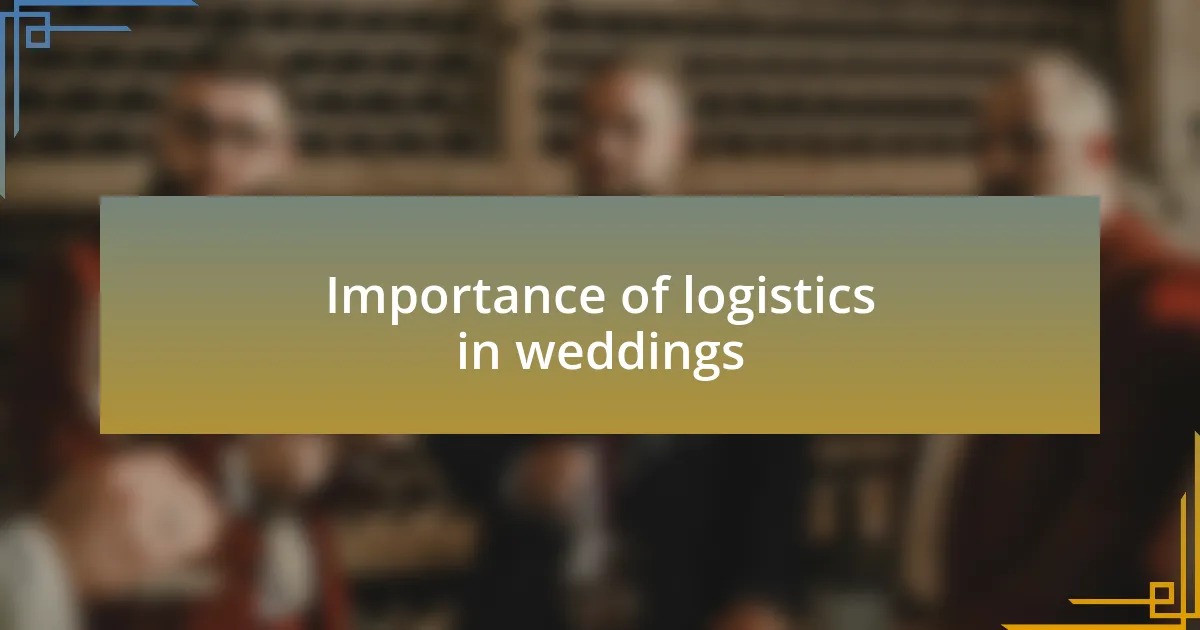
Importance of logistics in weddings
When it comes to weddings, logistics serve as the backbone of the entire day. I vividly recall the moment my best friend’s wedding nearly derailed because the shuttle meant to transport guests to the venue got lost. Imagine a room full of people excited for the ceremony but stuck somewhere in traffic! That day taught me firsthand how critical it is to have a solid transportation plan in place.
I’ve also learned that the importance of logistics extends to the smallest details, like seating arrangements and timing for speeches. At my cousin’s wedding, the DJ started playing music before all the guests were seated, leading to an awkward moment. Can you believe that? A well-planned timeline could have made that moment more enjoyable. A thoughtful logistics strategy ensures that every element flows seamlessly, creating an atmosphere of joy rather than chaos.
Ultimately, effective wedding logistics can transform a couple’s special day from a potentially stressful experience into a memorable celebration. I remember when my sister’s wedding coordinator ensured that every vendor had a contact list and timeline, which allowed for last-minute adjustments without a hitch. Have you considered how these small logistical details could impact your own wedding experience?
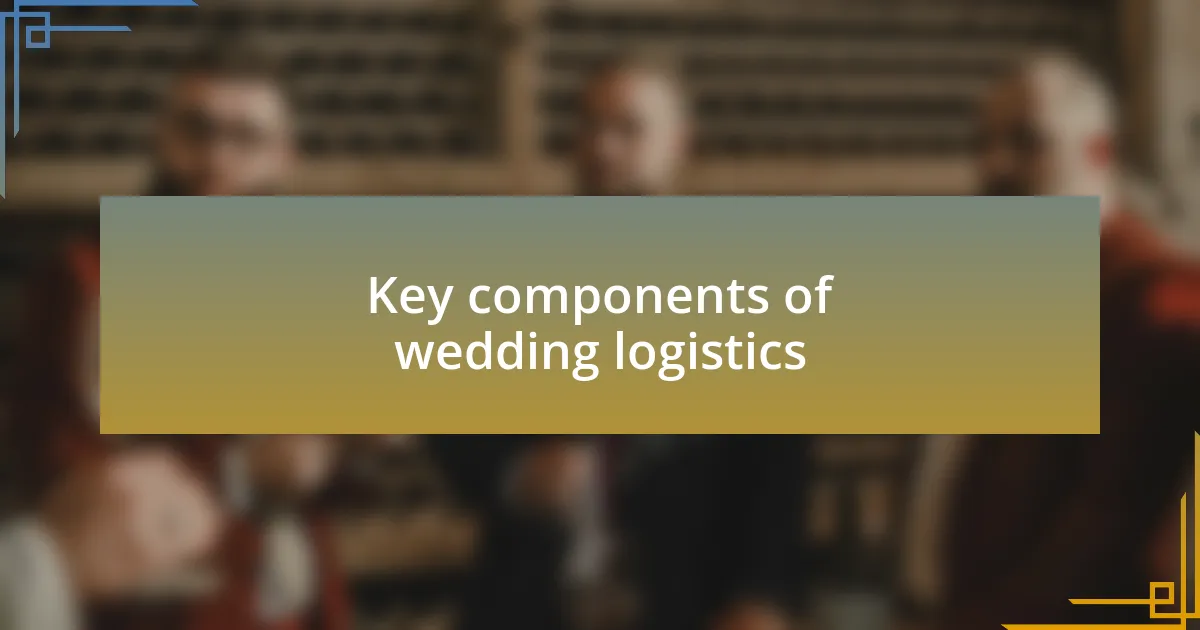
Key components of wedding logistics
The flow of events on the wedding day hinges on proper scheduling, which is one of the key components of wedding logistics. I remember attending a wedding where I noticed the photographer and videographer had slightly different timelines in mind. This led to some stunning moments being missed simply because one crew was in a different location at the wrong time. It left me wondering, how can couples ensure that their timelines sync perfectly?
Another essential aspect is vendor coordination. There was a wedding I helped plan where the florist and the caterer had conflicting setup times. It felt chaotic, with little space for the floral arrangements among the tables. That experience underscored for me how important it is to create clear communication channels among all vendors to keep things running smoothly. Have you thought about how to facilitate that communication for your wedding day?
Lastly, guest management is critical to logistics. I once attended a wedding where the couple had arranged all the seating but forgot to assign ushers. As guests wandered aimlessly looking for their seats, I could see the confusion grow. It made me realize how crucial it is to account for your guests’ experience—from arrival to seating—so their journey contributes to the day’s joy instead of detracting from it. What strategies have you considered to make your guests feel welcomed and informed?
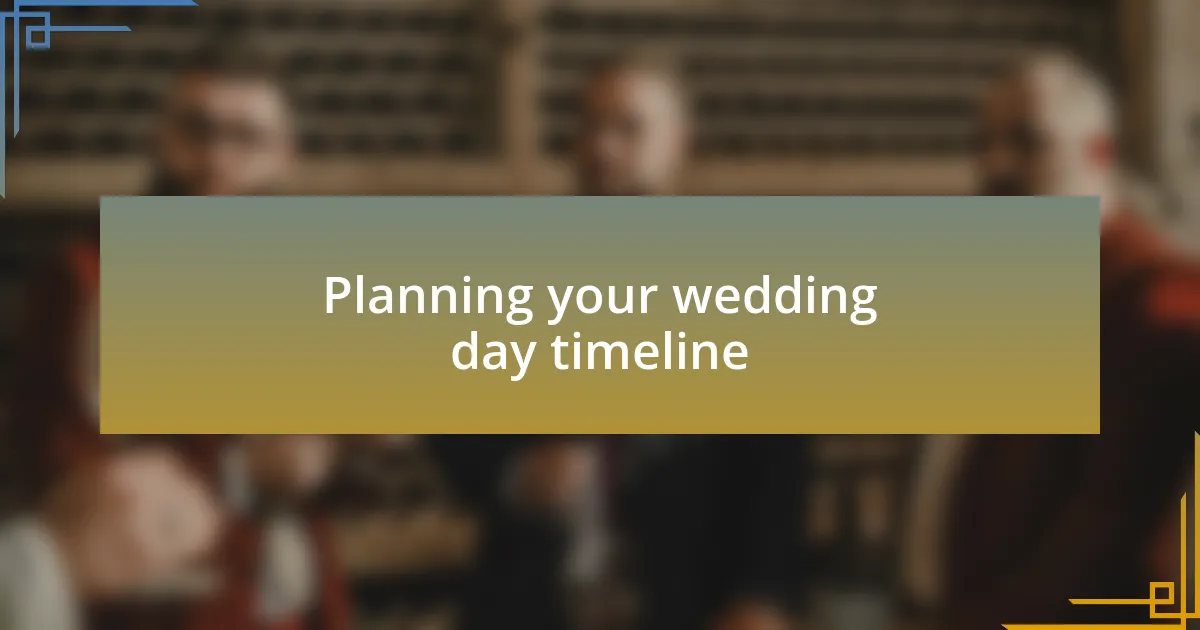
Planning your wedding day timeline
One of the first steps in planning your wedding day timeline is to determine the order of events that matter most to you. I recall the excitement during my friend’s wedding as we enjoyed a leisurely pre-ceremony toast, but it almost got cut short due to a tight schedule. It made me realize that figuring out how long each part of your day will take—and leaving a little buffer time—can prevent the stress of rushing. Have you thought about which moments are truly significant to you?
In creating your timeline, I suggest incorporating a rehearsal the day before. I once attended a wedding where the couple hadn’t done this, and it resulted in confusion during the ceremony. Watching them fumble through the procession made me appreciate the clarity that a rehearsal can bring. It allows everyone to know their roles and ensures that the big day flows seamlessly. How might a rehearsal for your special day help ease your nerves?
Don’t forget to account for travel time between venues. I remember being part of a wedding where the bride and groom had a gorgeous outdoor ceremony followed by a reception at a local hall. Unfortunately, their timeline didn’t reflect the distance, and we were all left waiting for nearly an hour. This experience taught me the importance of mapping out travel distances and potential traffic. What strategies do you have in place to ensure timely transitions on your wedding day?
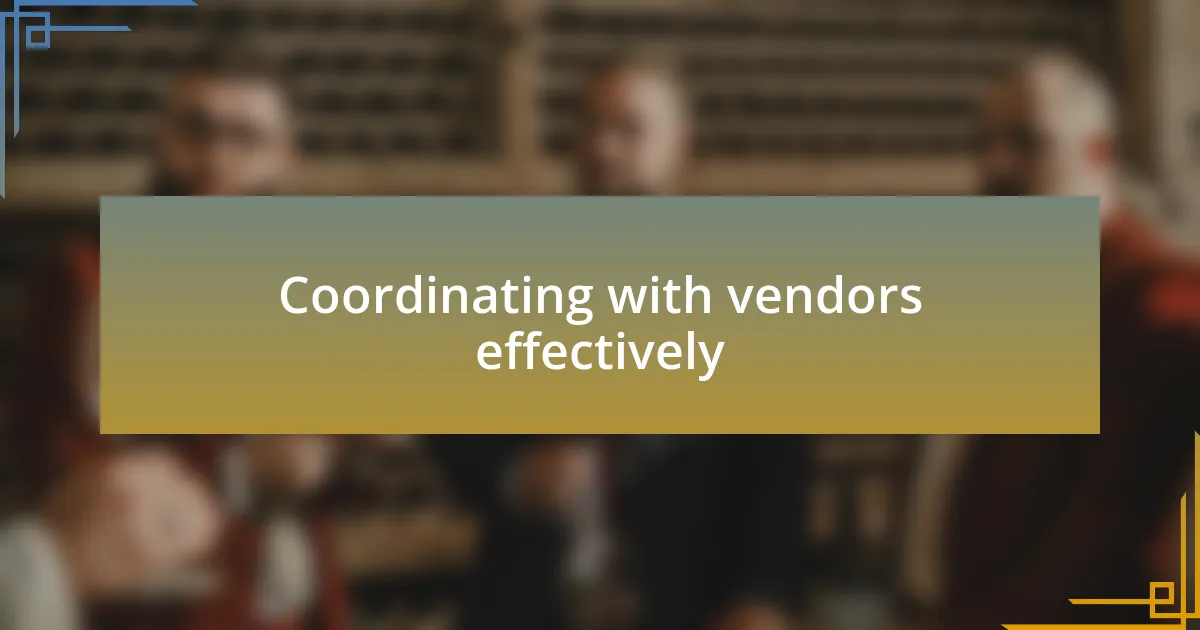
Coordinating with vendors effectively
When it comes to coordinating with vendors, clear communication is essential. I remember planning my sister’s wedding and the importance of reaching out to each vendor well before the big day. I found that sharing a detailed timeline with everyone helped eliminate confusion and set clear expectations. Have you considered how a simple email could clarify roles and responsibilities for your vendors?
In my experience, regular check-ins with vendors made a huge difference. A few weeks before my friend’s wedding, I touched base with the florist to confirm the bouquet details. It turned out they had been planning a different color. This small step prevented a last-minute surprise. How often do you plan to follow up with your vendors before the wedding?
Don’t underestimate the power of establishing a point of contact on your wedding day. During one wedding I attended, the couple designated a trusted friend as the liaison. That person ensured the photographer and caterer were on schedule and handled any hiccups, allowing the couple to fully enjoy their day. Have you thought about who might be your go-to person for logistical questions on your wedding day?